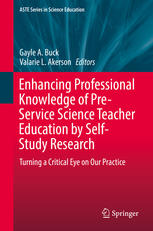

Most ebook files are in PDF format, so you can easily read them using various software such as Foxit Reader or directly on the Google Chrome browser.
Some ebook files are released by publishers in other formats such as .awz, .mobi, .epub, .fb2, etc. You may need to install specific software to read these formats on mobile/PC, such as Calibre.
Please read the tutorial at this link: https://ebookbell.com/faq
We offer FREE conversion to the popular formats you request; however, this may take some time. Therefore, right after payment, please email us, and we will try to provide the service as quickly as possible.
For some exceptional file formats or broken links (if any), please refrain from opening any disputes. Instead, email us first, and we will try to assist within a maximum of 6 hours.
EbookBell Team

4.0
86 reviewsSelf-study research is making an impact on the field of science education. University researchers employ these methods to improve their instruction, develop as instructors, and ultimately, impact their students’ learning. This volume provides an introduction to self-study research in science education, followed by manuscripts of self-studies undertaken by university faculty and those becoming university faculty members in science teacher education. Chapter authors range from those new to the field to established researchers, highlighting the value of self-study research in science teacher education for every career rank. The fifteen self-studies provided in this book support and extend this contemporary work in science teacher education. They, and the subsequent reflections on professional knowledge, are organized into four sections: content courses for preservice teachers, elementary methods courses, secondary methods courses, and preparation of future teacher educators. Respondents from various locations around the globe share their reflections on these sections. A culminating reflection of the findings of these studies is provided at the end of the book that provides an overview of what we have learned from these chapters, as well as a reflection on the role of self-study research in the future of science teacher education.